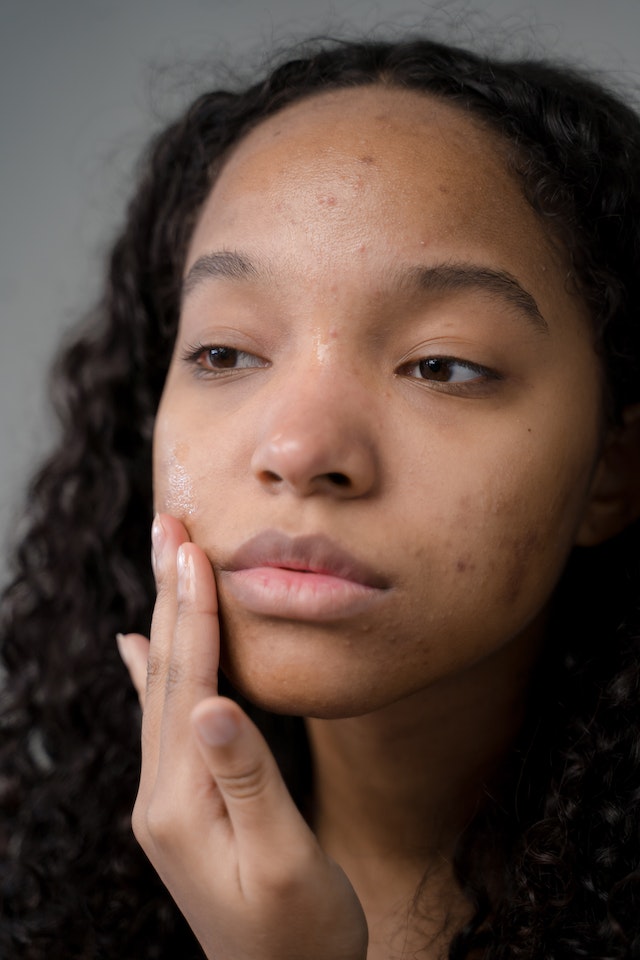Hormonal fluctuations can wreak havoc on our skin, and one of the most common manifestations is hormonal acne and hyperpigmentation. Many individuals experience these skin concerns in the days leading up to, during, or after their menstrual cycle. In this article, we will explore the causes, symptoms, and available treatment options for hormonal acne and hyperpigmentation. Additionally, we will delve into the benefits of holistic approaches to hormonal balance and the positive impact of switching to organic feminine care products like Femly on overall well-being.
Understanding Hormonal Acne and Hyperpigmentation
Hormonal acne occurs when hormone levels fluctuate, triggering an increase in sebum production. This excess sebum can clog pores, leading to the development of acne. The most common hormonal culprit is an androgen called testosterone, which stimulates the production of sebum.
Hyperpigmentation, on the other hand, refers to the darkening of certain areas of the skin. Hormonal imbalances can increase melanin production, resulting in uneven skin tone and dark spots. This can be particularly noticeable in individuals with darker skin complexions.
Causes of Hormonal Acne and Hyperpigmentation
Hormonal acne and hyperpigmentation are primarily caused by the hormonal shifts that occur during the menstrual cycle. As estrogen levels decrease and progesterone levels rise, sebum production can increase, leading to acne breakouts. Similarly, the rise in progesterone can stimulate melanocytes, resulting in hyperpigmentation.
Symptoms of Hormonal Acne and Hyperpigmentation
The symptoms of hormonal acne include the appearance of small, tender, and inflamed pimples, usually around the chin, jawline, and cheeks. These breakouts tend to occur cyclically, corresponding with the menstrual cycle. Hyperpigmentation, on the other hand, presents as dark patches or spots on the skin, often after an acne breakout has healed.
Holistic Treatment for Hormonal Balance
Achieving hormonal balance is crucial for managing hormonal acne and hyperpigmentation. Here are some holistic approaches that can help:Balanced Diet: Consuming a nutrient-rich diet that includes a variety of fruits, vegetables, whole grains, lean proteins, and healthy fats can support hormonal balance. Incorporate foods rich in omega-3 fatty acids, such as salmon and chia seeds, as they have anti-inflammatory properties.
Regular Exercise: Engaging in regular physical activity helps regulate hormone levels and reduces stress, which can contribute to hormonal imbalances. Aim for at least 30 minutes of moderate exercise, such as brisk walking or cycling, most days of the week.
Stress Management: High levels of stress can disrupt hormone production. Practicing stress management techniques, such as meditation, deep breathing exercises, or yoga, can help maintain hormonal balance.
Medical Treatment Options
For individuals with severe hormonal acne or hyperpigmentation, medical interventions may be necessary. Here are some treatment options that dermatologists may recommend:
Topical Treatments: Dermatologists may prescribe topical medications containing retinoids, benzoyl peroxide, or salicylic acid to help control acne breakouts and fade hyperpigmentation.
Hormonal Therapy: In some cases, hormonal therapy may be recommended to regulate hormone levels. Oral contraceptives, such as combination birth control pills, can help balance hormones and reduce acne. However, it's essential to consult with a healthcare professional before starting any hormonal therapy.
Chemical Peels and Laser Therapy: These procedures can effectively treat hyperpigmentation by exfoliating the outer layers of the skin or targeting melanin-producing cells, respectively. However, they should only be performed by qualified professionals.
The Role of Organic Feminine Care Products
Switching to organic feminine care products, like Femly, can contribute to a healthier lifestyle and support hormonal balance. Conventional feminine care products often contain chemicals, synthetic fragrances, and dyes that can disrupt the delicate hormonal balance of the reproductive system. Organic products, on the other hand, are made from natural, non-toxic materials that are less likely to irritate the skin and disrupt hormonal equilibrium.
Femly, for instance provides the best organic pads for periods and offers a range of organic feminine care products made from hypoallergenic and breathable materials. These products are free from harmful substances such as chlorine, parabens, and synthetic fragrances, reducing the risk of skin irritation and hormonal disruption.
By choosing organic feminine care products, individuals can reduce their exposure to potentially harmful chemicals and support the overall well-being of their reproductive system. Maintaining a healthy reproductive system is vital for hormonal balance and can contribute to healthier skin.
Hormonal acne and hyperpigmentation can be frustrating and affect individuals of various skin complexions. Understanding the causes and symptoms of these skin concerns is crucial for effective treatment. While medical interventions may be necessary for severe cases, adopting holistic approaches such as a balanced diet, regular exercise, and stress management can help achieve hormonal balance naturally.
Furthermore, switching to organic feminine care products like Femly can provide additional support by reducing exposure to harmful chemicals and promoting reproductive system health. By embracing a holistic lifestyle and making conscious choices about personal care products, individuals can take control of their hormonal balance and maintain healthier skin.
Remember, it's essential to consult with a dermatologist or healthcare professional to determine the best treatment options for your specific needs.

